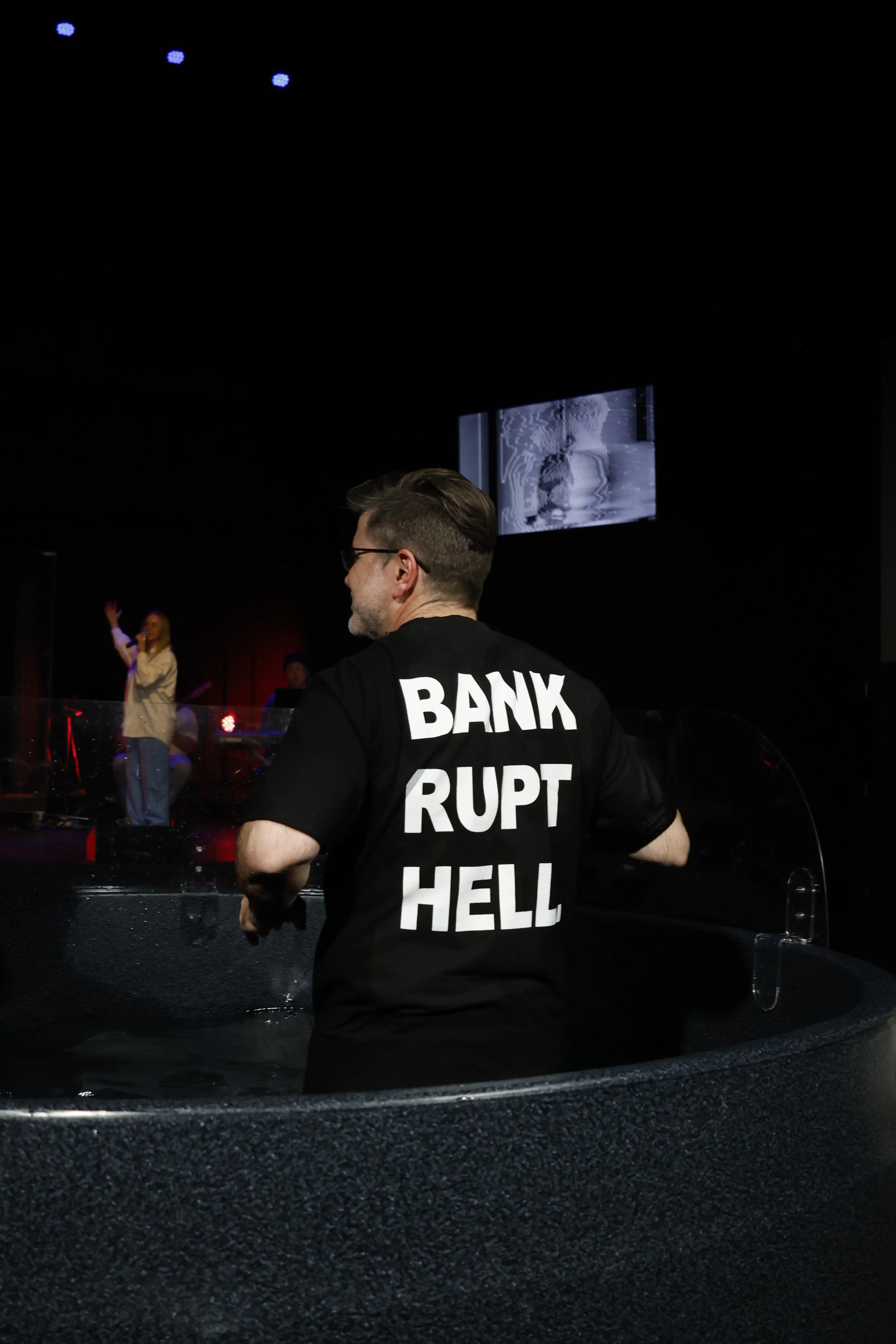BLOG
What God lost in Eden, recovered in Israel, and embodied in Christ is now lived out through the Church. Wherever believers gather in Jesus’ name, God makes His dwelling among them. The Church is not merely a meeting or an institution but a living temple filled with the Spirit and sent to carry His presence to the nations.
In Part 4 of The Presence-Centered Kingdom, we explore how the long story of God dwelling among His people reaches its fulfillment in Jesus Christ. From tabernacle to temple, every symbol and shadow pointed to the moment when the Word became flesh and made His home among us. Christ becomes the true dwelling place of God, and through Him, the indwelling Presence now fills His people.
Israel was never meant to be defined by borders, armies, or politics but by the Presence of God dwelling in its midst. From Moses’ tabernacle to Solomon’s temple, the story of Israel reveals a kingdom shaped by divine nearness. This article explores Israel’s calling as a Presence-centered nation, its priestly vocation, its failures, and the prophetic promise of a restored dwelling fulfilled in Christ and continued in the church.
In David’s refuge at Naioth, something more than protection unfolded — a prophetic convergence between Samuel, the voice who restored God’s word, and David, the psalmist who would enthrone God’s presence. In this hidden habitation, the Spirit moved with unusual power, shielding God’s purposes and imparting heaven’s blueprint for a presence-centered kingdom. Naioth became the incubator where the voice and the vision met.
In the days when the word of the Lord was rare, Samuel emerged as a bridge between a corrupt priesthood and a restored prophetic order. At Ramah, he built an altar to the Lord and rekindled Israel’s original calling—to be a people centered around God’s presence. His prophetic worship community became the seedbed of David’s kingdom, showing us that revival begins when God’s voice is heard once again.
The Song of Solomon ends with a vision of love in full maturity. The Bride has walked through testing, misunderstanding, and waiting—but now she stands radiant, bold, and sealed with fiery love. This is where Jesus is leading His people: into wholehearted partnership with Him, marked by passion, purity, and power.
After surrendering fully, the bride faces not glory but the night. In Song of Solomon 5, the Beloved calls her into darkness—not as punishment, but as invitation. This “dark night of the soul” reveals a love that’s tested, purified, and made steadfast. Here, we learn to love Jesus for His beauty, not just His blessings.
Jesus didn’t suggest that we try not to worry—He commanded it. In Matthew 6, He invites us into a life of freedom from anxiety through trust in the Father’s care. Here are seven practical ways to step out of fear and into peace.
Jesus doesn’t wait for perfection before calling us beautiful. In Song of Solomon 4, the Bridegroom looks at the bride—still in process, still weak—and declares, “Behold, you are fair, my love!” He delights in her simple yes, her willing heart, more than in flawless performance. Every glance, every small surrender, ravishes His heart. This is the scandal of grace: He sees our flaws but calls forth our budding virtues, inviting us into partnership with Him.
Part 3 of our Song of Solomon series explores the “night season” of divine discipline. Learn how suffering, obedience, and spiritual hunger deepen our intimacy with Jesus.
By chapter two of the Song of Solomon, the storyline shifts. The Bridegroom no longer simply nurtures—He calls. He beckons us beyond comfort into obedience, maturity, and holy confrontation with what keeps us small. Will we say yes when His voice comes leaping over the mountains?
The most transformative message I’ve ever encountered didn’t come from a revival or a power encounter—it came from one of the most unexpected books in the Bible: the Song of Solomon. This poetic and prophetic book gave me language for God's love that no systematic theology ever could. What started as confusion became an invitation into healing, identity, and burning affection with Jesus.
Fear is not just a feeling. It’s a ceiling. But the Gospel doesn’t just save us from sin. It invites us into family. You weren’t meant to live as a slave or an orphan. You were chosen, adopted, and called a child of God.
There’s a line in the song So Will I that says, “As You speak, a hundred billion failures disappear.” That lyric captures the gospel in a sentence. The cross didn’t just cover our failures—it made them disappear. Every mistake. Every regret. Gone.
You are not just forgiven. You are chosen. Adopted. Delighted in. The Father doesn’t need more servants—He wants a family. And He wants you in it.
What’s happening inside your heart is shaping everything about your life. Freedom doesn’t come by ignoring the pain — it comes by facing it head-on and letting Jesus heal the plague that’s hidden inside.
Jesus isn’t after your performance. He’s after your heart.
Not the version you’ve cleaned up or learned to protect—but the real you. The one that’s been bruised, disappointed, maybe even shut down. He wants to meet you there—not to shame you, but to heal you.
What started as five baptisms turned into over thirty as the Holy Spirit moved powerfully among young adults. It was joy, repentance, and resurrection life—God is marking Gen Z.
Paul’s vision of the church wasn’t organizational—it was architectural. He saw the people of God as a dwelling place being built for His presence. Hosting God requires more than good planning; it demands priestly leadership, prophetic space, and surrendered hearts. ‘God is really among you’ wasn’t just a possibility for Paul—it was the goal.
The Apostle Paul didn’t see the church as just an organization or a gathering of believers—he saw it as the new temple, a dwelling place for the manifest glory of God. Rooted in temple theology and empowered by the Holy Spirit, Paul stewarded the presence of God in the local assembly with conviction. From worship order to church discipline, everything he taught pointed to one goal: cultivating space for God to dwell among His people. This blog explores Paul’s presence-centered ecclesiology and what it means for the Church today.
You haven’t suffered because you’ve failed. You’ve suffered because God is inviting you closer—not just as a child or servant, but as a friend. The kind of friend who stays in the silence, walks through the fire, and chooses presence over answers. This is the kind of friendship Jesus died to offer—and it changes everything.
There is so much more available. Let’s not settle for a watered-down version of Christianity. I’m calling us to a fresh infilling of the Holy Spirit—devoted to prayer, bold in faith, and rejoicing in persecution. Let’s expect signs, wonders, and miracles, reclaiming the vibrant, Spirit-filled life Jesus intended. This is what we were made for!
As we step into 2025, I sense the Lord’s invitation to believe again, to hope again, and to dream again. For many, 2024 was marked by challenges that left hearts heavy and faith shaken. Yet, even now, God is speaking a word of hope:
"For I know the plans I have for you," declares the Lord, "plans to prosper you and not to harm you, plans to give you hope and a future. Then you will call on me and come and pray to me, and I will listen to you. You will seek me and find me when you seek me with all your heart." (Jeremiah 29:11-13)
The past year has brought deep challenges to the House of Prayer movement, calling us to embrace a new humility in our worship and prayer. As we face trials and moral failures within the church, we’re reminded of David’s journey to bring the Ark of the Covenant to Jerusalem. Just as David learned that God’s will must be done God’s way, we too are being called to center our prayer rooms on the presence of Jesus, with humility and obedience. This is a pivotal moment for the church, where prayer and fasting must take precedence, and we must carry God's presence as a kingdom of priests.
In a time when many are seeking a deeper connection with the heart of God, the 'Presence-Centered, Prayer-Based' church model offers a return to the essentials—prioritizing worship and prayer as the foundation of ministry. Discover how this approach, rooted in the example of the early church, places the person and presence of Jesus at the center of all we do.
The Church, particularly within the non-denominational and charismatic traditions, finds itself at a great inflection point. We are navigating through a tumultuous period marked by a significant leadership crisis, fundamentally rooted in a lack of accountability and authenticity.
We are currently in the season where we reflect on Jesus' First Coming, an event heralded by angels proclaiming, 'Glory to God in the highest, and PEACE on earth, goodwill toward men.' I hope these notes inspire your heart and assist in your study of the significance of God’s peace during this season.
We are once again on the verge of another election cycle and this time my tune is very different. I shouldn’t think it strange, but God has completely surprised me. My worldview has not changed, but God has done something that is causing me to wonder, in a fresh way, what He is offering America and what He wants to do in American politics.
In the history of the world, there has never been a gathering of fasting and prayer of this magnitude for the nation of Israel. What an amazing time to be alive!





























The restoration of the Tabernacle of David reveals God’s enduring desire to dwell among His people. From David’s open tent of unceasing worship to the practices of the early Church, Scripture unfolds a presence-centered Kingdom where worship, unity, and mission flow from God’s habitation in the midst of His people.